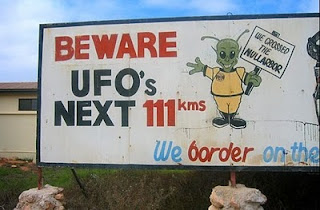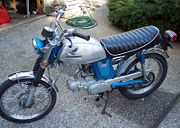
A vital function of an operational motorcycle is the transmission, which means that a vital function of the motorcycle operator is the ability to shift gears! One would think that shifting gears is no big deal - pull in clutch, tap the shifter into the next gear, release the clutch and you are back on your way. But like so much in riding and in life, it is a bit more complicated than that.
The problem lay not so much in the physical aspects of dis-engaging and re-engaging the transmission as in the consequences of said actions, which is really the important part. Pulling and tapping are actions necessary to accomplish the task of transferring power from the engine to the wheels. Clumsy, sudden, or inefficient engagement of clutch and shifter is a prescription for trouble, since those actions affect the transfer of power, and transfer of power is what makes a motorcycle go ... or not.
The problem lay not so much in the physical aspects of dis-engaging and re-engaging the transmission as in the consequences of said actions, which is really the important part. Pulling and tapping are actions necessary to accomplish the task of transferring power from the engine to the wheels. Clumsy, sudden, or inefficient engagement of clutch and shifter is a prescription for trouble, since those actions affect the transfer of power, and transfer of power is what makes a motorcycle go ... or not.
Racers spend a lot of time thinking about how to improve shifting, since every fraction of a second matters. Smoother means faster, faster means more efficient, and more efficient means time is saved - the secret to winning a race. Folks such as Lee Parks take that knowledge and share the insights with us every day riders. In his classes Mr. Parks spends no little amount of time on how to efficiently shift gears and one important aspect is what is termed "pre-loading" which simply means that you gently nudge your shifter prior to needing to shift. By doing so the amount of time and energy it takes to actually shift into gear is reduced, producing the probability of a much smoother shift.
Given how often we hear the phrase "get it in gear" it seems to me that this concept of pre-loading, of preparing yourself to move from one activity or level to another, is a concept applicable to life. This really came home to me this past week.
The Christmas seasons often brings out the best and the worst in people, which means that as a pastor I must respond to a variety of situations. The other day I had spent the morning in pastoral care, listening to concerns and fears, sharing sadness at loss, trying to offer comfort to folks in distress. Then the secretary came into my office to tell me of an aggressive and confrontative person in the Church; she was scared and needed some assistance. As an urban church we have lots of folks come through seeking help and most are polite, respectful and appreciative. But now and then you get some folks with mental health issues and other folks who are just plain mean.
This guy was the latter.
I went out, chatted with him and offered him the services we have available; however, we require folks to give us their names and he absolutely refused to do so. I twice explained to him why we do this and he continued to act in a belligerent manner. I told him that I respected his position and without thinking I reached out and gently touched his arm as I did so.
Big mistake. And I know better; when confronted by an angry person you DO NOT touch them, as regardless of how gentle the touch they will respond to it as an attack. But I was still in "pastoral" mode where a gentle touch is reassuring and comforting. I had not "pre-loaded" myself so that I was prepared to shift gears quickly and efficiently and deal with this gentleman in a manner appropriate and effective for his situation.
The end of the story is that the guy became even more aggressive, I asked the secretary to call the police (if I was going to get smacked in the snout I would rather have the cops on the way before getting pummeled than after), and then escorted him out the door. He went without physical violence and my snoot remained without need of physician, much to my relief.
All of us in life are faced with various and sundry demands on our persons and our times. I have a hunch that a lot of conflict emerges because we have not adequately pre-loaded and prepared ourselves to shift gears as necessary: unexpected demands and needs often result in us responding with anger, frustration, or confusion which then leads to conflict.
I have no handy-dandy method to suggest how to accomplish this pre-load. Sometimes I remember to do it on my bike, and sometimes I don't. The same is true in life. But the more we adequately pre-load, that is, the better we are at preparing ourselves to shift gears, the smoother the transition. And smooth is good!











